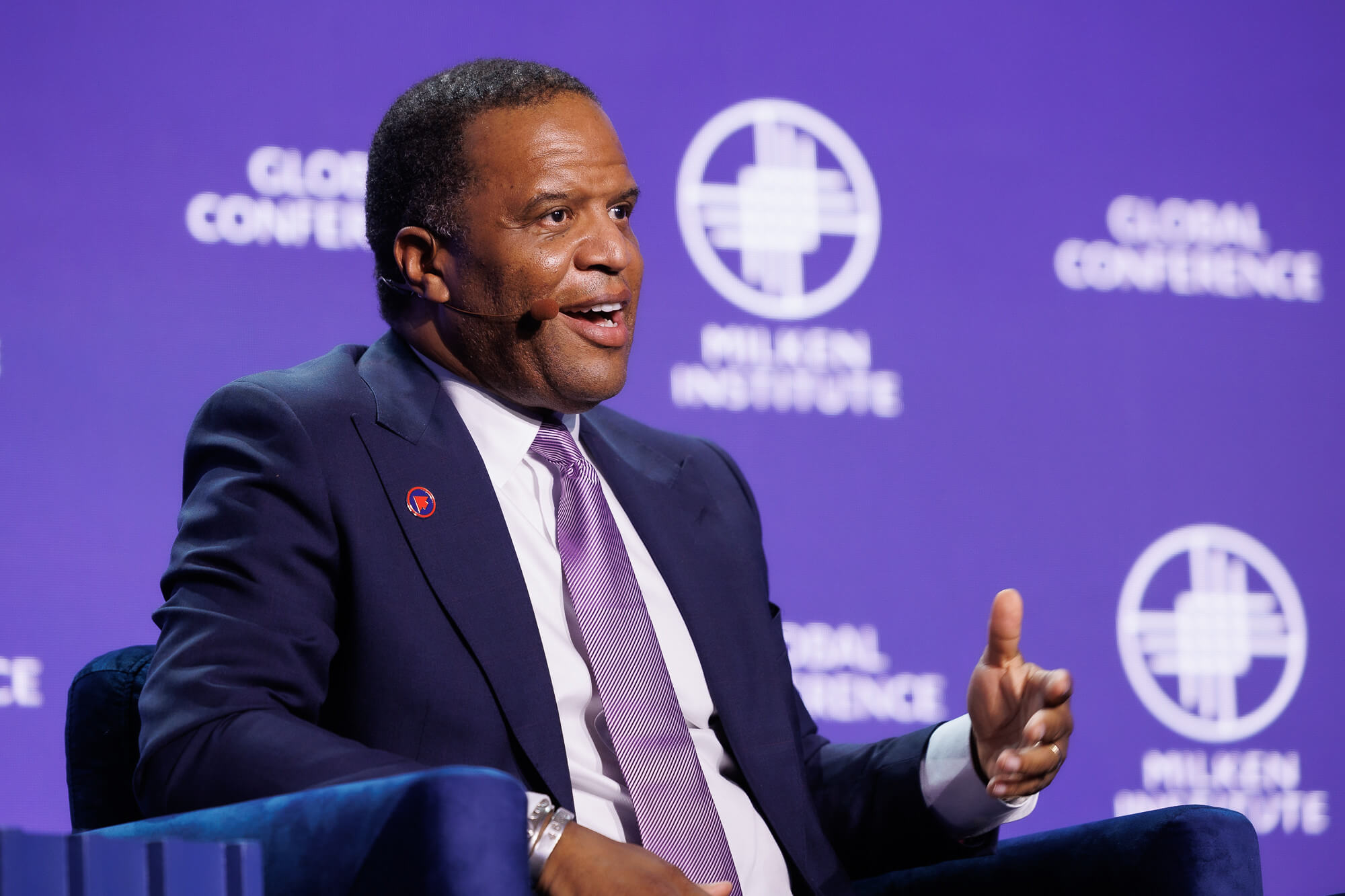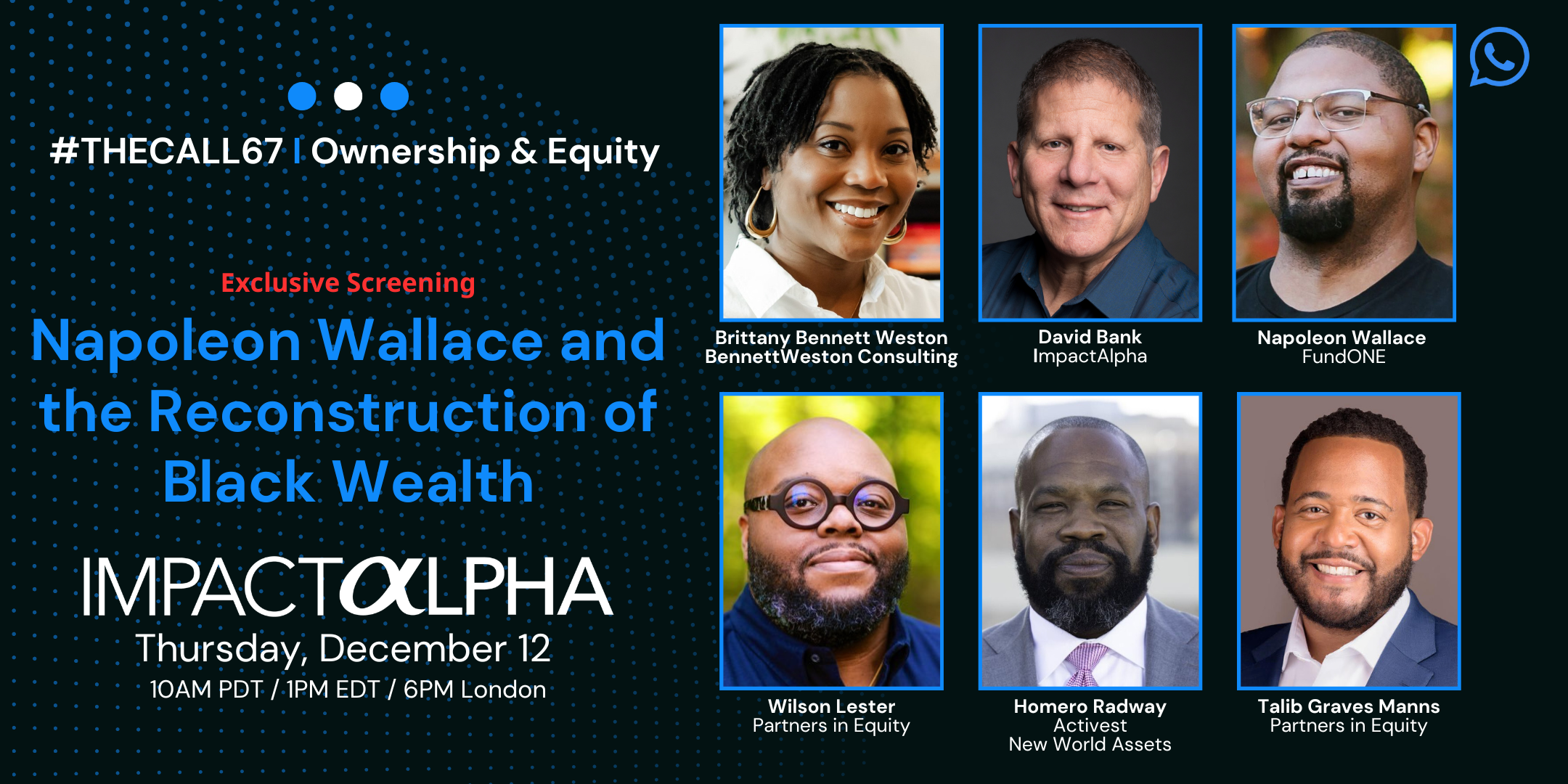Goldman Sachs, Bank of America and other ostensible leaders of Wall Street are beating a retreat on diversity, equity and inclusion, or DEI. John Hope Bryant of Operation Hope is mounting an offensive.
America’s “individual and collective success has literally been built on immigrants and our diversity,” Bryant wrote in “The Business Plan for America: A Case for the Big Tent,” a six-point memo that argues that diversity drives US economic growth.
Bryant took his pro-diversity, pro-economy, financial literacy message to a closed-door, off-the-record meeting at last week’s Milken Institute’s global conference. The choice on Wall Street and other institutions “to refuse embracing diversity and inclusion is the equivalent of jeopardizing the well-being of our children and grandchildren,” says Bryant.
Public scolding
At the Milken conference, Pershing Square’s Bill Ackman was confronted by panelists and attendees, including “some of Wall Street’s most senior executives of color,” for “his public denunciation of DEI and for expressing views that participants said were detrimental to the progress of women and people of color in America,” reported Bloomberg.
Other speakers at “The DEI Shake-Up: Assessing progress and pushback” included Jarvis Hollingsworth of Teacher Retirement System of Texas, Dina DiLorenzo of Guggenheim Investments, Don Peebles of The Peebles Corporation.
At a separate Milken panel, according to Bloomberg, Vistria’s Marty Nesbitt argued the diversity debate misses the point that investing in underserved people drives returns. “There’s a real opportunity under all these perspectives to make a really good risk-adjusted return,” Nesbitt said.
Economic case for diversity
Ackman’s position, including that DEI is “inherently inconsistent with basic American values,” has lent Wall Street credibility to the anti-DEI campaign run by conservative activists (for context, see “Confronting real bias in asset management to set the record straight on DEI”).
Racism just doesn’t work in a robust economy, says Bryant, citing a 2020 Citigroup report that found bias against Black people alone over roughly the last 20 years has cost the U.S. economy approximately $16 trillion. That “is a balance sheet and income killer.”
Closing racial gaps in wages, access to housing credit, higher education, and startup funding could add $5 trillion to US GDP over the next five years, Citi found. Bryant called financial literacy a national economic imperative “for ALL people, including the working poor whites today, who make up a larger number of those in poverty.”
Demographics are destiny
Metro Atlanta, for example, the most diverse city in the Southeast, “runs on a business plan of diversity and inclusion,” in contrast to almost every other city in the south, Bryant says. The city’s gross domestic product ($450 billion) is larger than the GDPs of six individual southern states, including Alabama, Arkansas, Kentucky, Louisiana, Mississippi, and West Virginia.
America’s population is more than 40% people of color, up from 10% in 1955. “There seems to be an active push to destroy and dismantle programming focused on helping these groups to become competitive in a market economy, let alone to be able to win,” Bryant writes.
“Unless we all want to be subject to the rules of some authoritarian government or to some form of chaos, we will need to get one thing straight and crystal clear: going forward, we actually need each other.”












